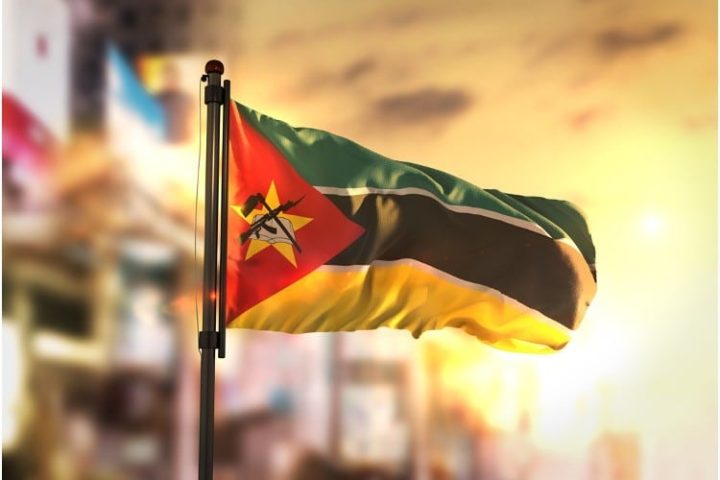
In early March this year, the U.S. Embassy in Mozambique disclosed that U.S. Special Forces planned on training and equipping Mozambican Marines to combat the incessant Islamic State-linked insurgency — which has raged since the first reported attack in the northernmost, resource-rich province of Cabo Delgado — in June 2019. The insurgents, a group known as “Al Shabaab,” are reported to have regularly engaged the services of private military contractors in 2020 to assist in capturing towns and executing brutal mass killings. Emilia Columbo, senior associate at the Washington-based Centre for Strategic and International Studies, commented, “When you hear these accusations of civilian casualties involving private military contractors, it reflects badly on the government.”
On March 2, Amnesty International submitted a report exposing human-rights abuses in Cabo Delgado that conceivably did more than “reflect badly” on the government. The document implicated Mozambican security forces in extrajudicial executions and other human-rights violations. According to Deprose Muchena, Amnesty International’s regional director for East and Southern Africa, “The people of Cabo Delgado are caught between the Mozambican security forces, the private militia fighting alongside the government, and the armed opposition group known as ‘Al Shabaab’ — none of which respect their right to life, or the rules of war.”
On March 16, two weeks after these Amnesty revelations, terrorists further disregarded the rules of war in Cabo Delgado by beheading children as young as 11 years of age. Chance Briggs, Mozambican director of the United Kingdom Humanitarian Organization for children — Save the Children — was reportedly “sickened to the core” and said that his staff had been brought to tears when speaking to witnesses. Briggs added, “While the world was focused on Covid-19, the Cabo Delgado crisis ballooned but has been grossly overlooked.”
The most recent “heinous acts of violence” commenced in Cabo’s town of Palma on Wednesday, March 24 and continued into the weekend. The onslaught caused dozens to take refuge in the dense tropical forest surrounding the town. At least 200 foreign workers escaped to a local hotel, but many lost their lives while being evacuated to the beach where they hoped to be rescued. In the account of Omar Saranga, a spokesperson for the defense and security forces, “A group of terrorists sneaked into … Palma and launched actions that resulted in the cowardly murder of dozens of defenseless people.” Human Rights Watch recounted testimonies of witnesses describing hundreds of dead bodies strewn in the streets, many of them beheaded.
According to Laura Tomm-Bonde, of the International Organization of Migration, “Initial reports indicate that civilian population had been fleeing Palma in all directions, some all the way up into Tanzania, while others are moving down South in Cabo Delgado — to areas such as Nangade, Mueda and Pemba.” According to police patrolling the city port, a boat of 400 people successfully evacuated Afungi on Saturday and arrived safely in the provincial capital of Pemba the same day.
This poses the question: What grievance is serious enough to warrant this kind of mass murder in the eyes of its instigators? According to Amnesty International, “The insurgency was sparked by the long-term underinvestment by central government in the Muslim-majority province of Cabo Delgado. The movement did not gain traction until the arrival of resource extraction industries that provide little subsequent benefit for the local community.” The insurgents are presumably dissatisfied with what they see as marginalization, growing poverty, and inequality in the province while mining and gas companies get rich.
At a U.S. press conference on March 11, there were two differing perspectives as to how to deal with the issue at hand. John T. Godrey, acting special envoy for the Global Coalition to Defeat Isis, reportedly said, “We have to confront Isis in Africa.” Then Michael Gonzales, deputy assistant secretary in the U.S. Bureau of African Affairs, suggested “addressing the socioeconomic drivers of the threat, countering Isis messaging, and providing greater economic opportunity and resilience of the community.”
Whatever course of action is taken, the fact remains that the United Nations has warned that the number of internally displaced persons in Mozambique is close to reaching the one million mark. In addition, since the initiation of the insurgency, thousands of people have been killed or shunted into primitive living conditions where shelter, food, clothing, and water are desperately needed.
Raouf Mazou, assistant high commissioner for operations office of the United Nations High Commissioner for Refugees (UNHCR), after meeting with senior government officials in Mozambique, said, “Authorities have established an agency for developing Northern Mozambique, in efforts to address some of the root causes of the crisis, which include lack of development and access to resources. What we’re facing now is the need for immediate humanitarian assistance and also to think of the long-term for those who remain in the places where they are now.”




